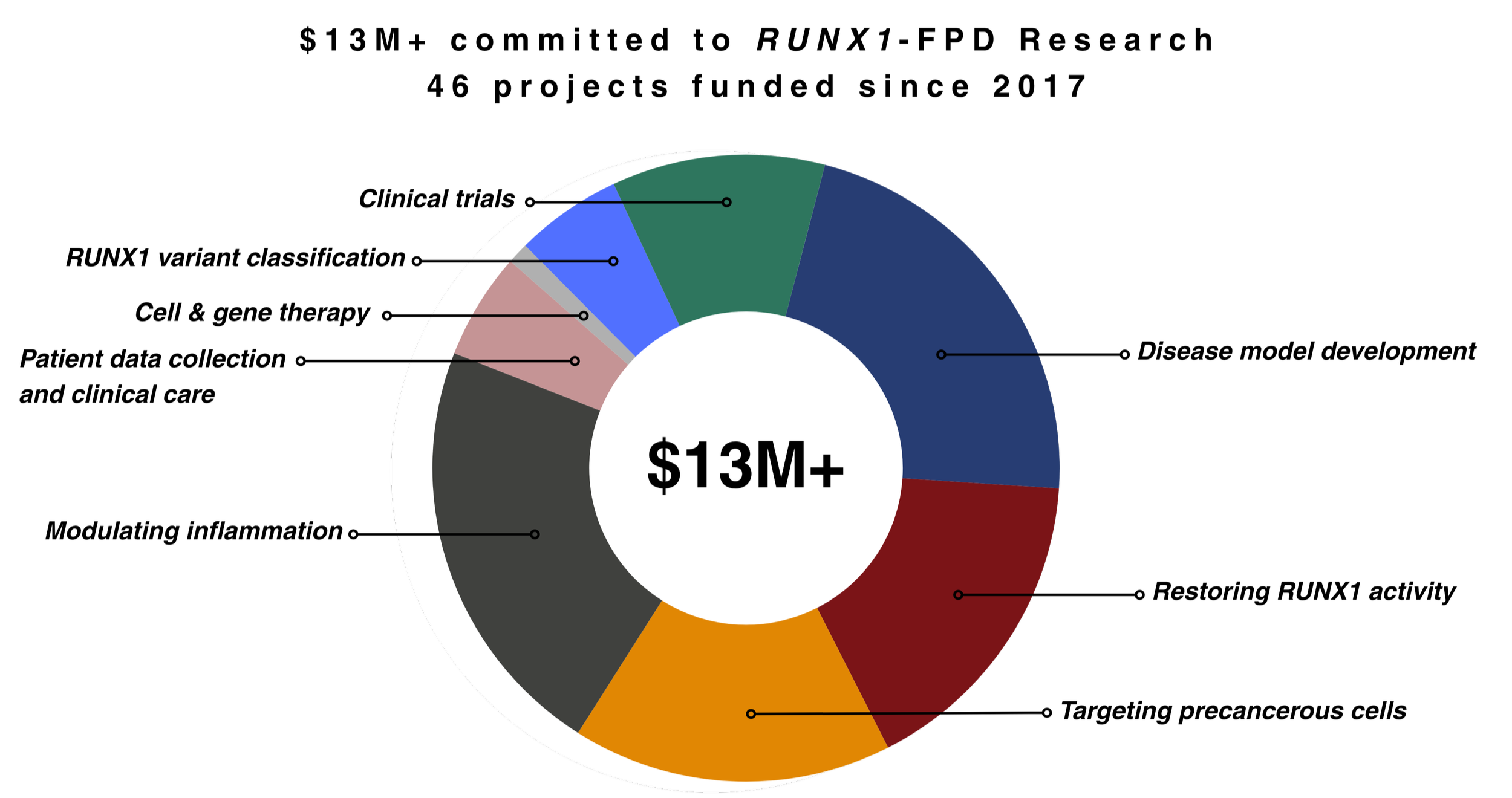
FOR RESEARCHERS
Research Funding Opportunities
RRP-ACS Leukemia Exploration and Prevention Grant Program (LEAP) Grant
Anticipated Application Deadline: Monday, June 1, 2026
The LEAP Grant aims to propel groundbreaking research in blood cancer interception and prevention for individuals affected by RUNX1-FPD. Focus areas include:
Deepening the understanding of biologic processes that drive the transition from clonal hematopoiesis to hematopoietic malignancies in RUNX1-FPD.
Supporting high-risk projects that pursue cancer interception treatments, including preclinical studies and clinical trials in RUNX1-FPD.
Eligibility
You work at a U.S. academic institution or an eligible non-profit.
You are a full-time independent investigator at any career stage.
Grant Terms
Applicants may only apply for one of the two funding mechanisms
1. LEAP-Research Scholar Grant
Intent: Supports an independent research project that aligns with one of the two LEAP program focus areas. Research Scholar Grants (RSGs) provide support for independent, self-directed researchers.
Term and Budget: Awards are for up to $215,000 per year for up to 4 years ($860,000 total direct costs) plus 10% allowable indirect costs.
2. LEAP-Team Award
Intent: Supports a team research project that aligns with one of the LEAP program research focus areas. The application must clearly articulate how the team will synergize to accelerate scientific advancement and clinical benefit.
Term and Budget: Team awards are for up to $430,000 per year direct costs for up to 4 years ($1,720,000 direct costs), plus 10% allowable indirect costs.
Coming Soon: RRP-ALSF Early Career Investigator (ECI) Grant
Application Deadline: December 2026
The RRP-ALSF ECI Grant Program supports early-career scientists focused on inherited hematologic malignancy predisposition disorders, particularly RUNX1-FPD. This program provides funding to advance innovative research aimed at intercepting disease-associated processes that lead from a premalignant state to overt hematologic malignancy in RUNX1-FPD patients.
Click below to learn more about past ECI Grant recipients and their funded research projects:
RRP Cancer Interception/ Prevention Research Roadmap
Our roadmap is simple. We only invest in research that brings us one step closer to our end goal. We understand that discovering medicines requires the right tools (i.e. disease models and laboratory reagents) and the right datasets (i.e. patient clinical and genomic data, as well as patient biospecimens). We have defined 4 rational therapeutic approaches to preventing blood cancer:
1) selectively targeting precancerous cells;
2) increasing RUNX1 activity;
3) decreasing cancer-causing inflammation;
4) fixing or replacing RUNX1-mutated cells using cell or gene therapy.




